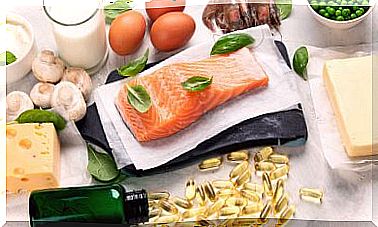5 Consequences Of Excess Ultra-processed
During the last decades, the food industry has entered our homes to facilitate our tasks at mealtime. The lack of time, that they are easy to make and that they are tasty, are the main reasons why we resort to this type of food, but what does excess ultra-processed mean in health?
Keep in mind that a healthy diet is characterized by variety and the presence of fresh foods in the diet. Frequent use of industrial products can have negative consequences, as we will see below.
Consequences of excess ultra-processed
We can classify foods in:
- Unprocessed or minimally processed foods: fruits, vegetables, milk, meat, legumes, seeds, cereals, eggs.
- Processed foods that have been modified to last longer or taste better, usually with salt, oil, sugar, or fermentation. They include: yogurts, cheese, ham, homemade bread, canned fruits, vegetables and legumes, smoked or canned fish, beer and wine.
- Ultra-processed foods have gone through industrial processes synthetically or from substances in other foods, and they often have long lists of ingredients on the label, including preservatives, sweeteners, or color and flavor enhancers. This group includes: processed meats such as hot dogs and hamburgers, breakfast cereals or cereal bars, sauces, instant soups, sugary sodas, chicken nuggets, cakes, chocolate, ice cream, cookies, mass-produced bread, many foods “Ready to heat”.
How does the consumption of ultra-processed foods affect health?
Most of these products present in their composition several of the following characteristics:
- High calorie content: these are usually empty calories, that is, a lot of calories and a low amount of nutrients.
- Hydrogenated or trans fats: these are fats generated by the food industry, mainly to make the product cheaper and more appetizing.
- Sugar : these products usually have added sugar, which is not only present in pastries but is also found in sauces, meat products, etc. This ingredient has been shown to be able to promote obesity and metabolic problems, so its consumption should be limited.
- Salt : salt makes the product last longer, as well as being more hyperpalatable.
- Refined flours and oils: refined flours and oils undergo an industrial process, in which vitamins and minerals are extracted.
- Additives: such as preservatives, sweeteners, flavor enhancers, etc. Some of them, such as sweeteners, are capable of causing unfavorable changes in the composition of the gut microbiota, according to a study published in Current Gastroenterology Reports .

1. Overweight and obesity
One of the main health problems caused by the excessive consumption of ultraprocesses is the increase in body fat, which leads to being overweight or obese.
According to the WHO, in recent years the number of cases of obesity and overweight has tripled. In 2016, 1.9 billion 18-year-old adults were overweight, of which 650 million were obese. As if that were not enough, in 2016 there were 41 million children around the world with obesity or overweight.
A study carried out by the University of Navarra evaluated 8451 university students in normal weight, a population group that tends to abuse the ultra-processed. During the follow-up of the study, 1,939 students became overweight or obese due to excessive consumption of ultra-processed drugs.
2. Cardiovascular disease
Weight gain causes an increased risk of cardiovascular diseases, such as hypertension, atherosclerosis, myocardial infarction or stroke.
In addition, the excessive consumption of salt present in ultra-processed foods increases the probability of suffering from cardiovascular diseases. The same happens with monosodium glutamate, an additive that enhances the flavor. According to several studies an excessive intake of this favors weight gain, oxidative stress, memory defects and epilepsy.
3. Type 2 diabetes mellitus
If we regularly consume ultra-processed foods, normally rich in sugars, we can become diabetic. The mechanism is explained because if we take, for example, about 200 grams of sugar per day, insulin is triggered and glucose cannot enter the cells. An alteration is created at the metabolic level that can translate into insulin resistance.
4. High cholesterol
Another consequence of excess ultra-processed would be that our blood cholesterol levels could rise, and not only by consuming the fat present in these types of products as is believed, but also by sugar. Returning to the previous explanation, insulin resistance implies that the cell cannot open to it, therefore glucose begins to accumulate in the arteries.
The result would be: high levels of glucose in the blood, as a consequence hypertension, increased triglycerides, decreased HDL cholesterol and increased LDL.

5. Cancer
The number of cancer cases related to food is inversely proportional to the reduction in the consumption of foods such as fruits, vegetables, legumes and nuts. The less healthy we eat, the more likely we are to develop cancer.
Reduces the consumption of ultra-processed
We see that all these diseases are related to each other and that their main causes are the excess of ultra-processed. If we add sedentary lifestyle to this, the combination is dangerous.
It is important to inform ourselves about the nutritional characteristics of food, as well as to modify our unhealthy lifestyles. Ultra-processed products are here to stay and we must learn to select and consume them responsibly so as not to fall into excess.









